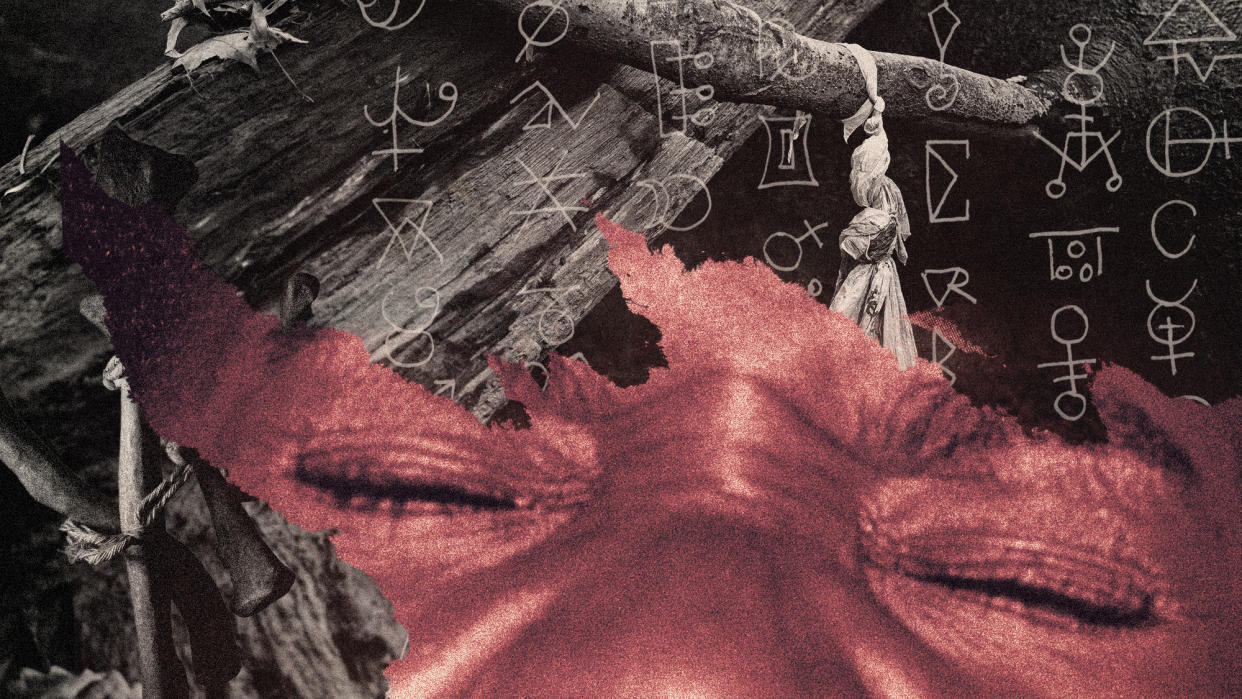Centuries after Salem, witch hunts persist

The last proceedings of the Salem Witch Trials in Massachusetts ended in 1693. But 331 years later, religious witch hunts remain a common — if not well-publicized — occurrence in countries around the world. Women are the predominant targets, though men and even children are also persecuted for allegedly practicing witchcraft. While the practice is often thought of as a relic of the past, there is evidence that witch hunts may actually be increasing, not disappearing.
Witch hunts remain a "global problem in the 21st century," Deutsche Welle said, and is such a pervasive issue that Aug. 10 has even been designated "World Day Against Witch Hunts." "Thousands of people are accused of practicing witchcraft every year, and many are "persecuted and even killed in organized witch hunts," DW said. These witch hunts are most prominent in African countries but are also common in parts of Asia, Latin America and the Caribbean.
Why, more than three centuries after the barbarism of the Salem Witch Trials, does the practice of "hunting witches" still continue in the modern world? And what is being done to combat witch hunts and protect the victims?
What is the 'modern' version of a witch hunt?
As was the case in Salem, modern witch hunts involve the trial and persecution of people who have been accused of witchcraft. The hunts can often involve extreme violence, and "media reports suggest a disturbing pattern of mutilation and murder," The New York Times said. This brutality is one of the "ugliest aspects" of witch hunts.
"Victims are often burned alive," the Times said, referencing what has been reported in the majority of instances. However, those accused of witchcraft can also be "beaten to death" or they may be "stoned or beheaded, as has been reported in Indonesia and sub-Saharan Africa." In many communities, it is "chiefly young men who take on the role of witch hunters, suggesting that they may see it as a way to earn prestige by cleansing undesirables," said the Times — though as previously mentioned, men may also be accused of witchcraft themselves.
Why do these witch hunts occur?
In many countries in the developing world, witchcraft is "associated with the power of nature, such as medicinal and poisonous plants, or rains and floods," and "people accused of witchcraft are said to be able to control natural events such as storms or droughts," said National Geographic. As a result, "witchcraft is sometimes seen as the cause" of illnesses, particularly in "places with poor medical care or few educational opportunities."
One notable example occurs in Zambia, where the World Health Organization estimates nearly 25% of pregnant women are infected with HIV/AIDS. This leads to men, women and children being "accused of spreading HIV/AIDS through witchcraft," National Geographic said. Witch hunters are then hired to "kill those accused of witchcraft with a so-called poisonous 'tea.'" Similar cases of witch hunts against illnesses have been seen in other countries, including Papua New Guinea.
Beyond this, some people may become the victims of witch hunts simply for looking different. In Tanzania, "albino people are in danger of being killed for their skin and body parts" because some people "believe the arms, legs, skin, and hair of albinos have special magic in them," National Geographic said.
But these causes don't act alone, as "multiple roots entwine to produce a witch hunt," Scientific American said. These roots can include a "belief in sorcery, a patriarchal society, sudden and mysterious deaths resulting from a paucity of health care, inaccessible justice systems that give impunity to attackers, a triggering disaster" and more — all coming together to result in a fear of witchcraft, said Scientific American. Ultimately, what witch hunts all have in common "across time, space and culture, is a backdrop of social and economic dislocation."
What is being done about witch hunts?
Action from the authorities is "effective in stopping witch hunts," National Geographic said. And in South Africa, there has been an "educational campaign in schools and workplaces about science, medicine, and HIV/AIDS" to try and deter witch hunts.
There are also organizations such as End Witch Hunts, which "facilitates education on witch hunts of the past and the present, to advance the elimination of witch hunting," according to the group's website. Despite this, an uphill battle remains, and "every year more than 1,000 people around the world" are killed due to accusations of witchcraft, said Scientific American.

